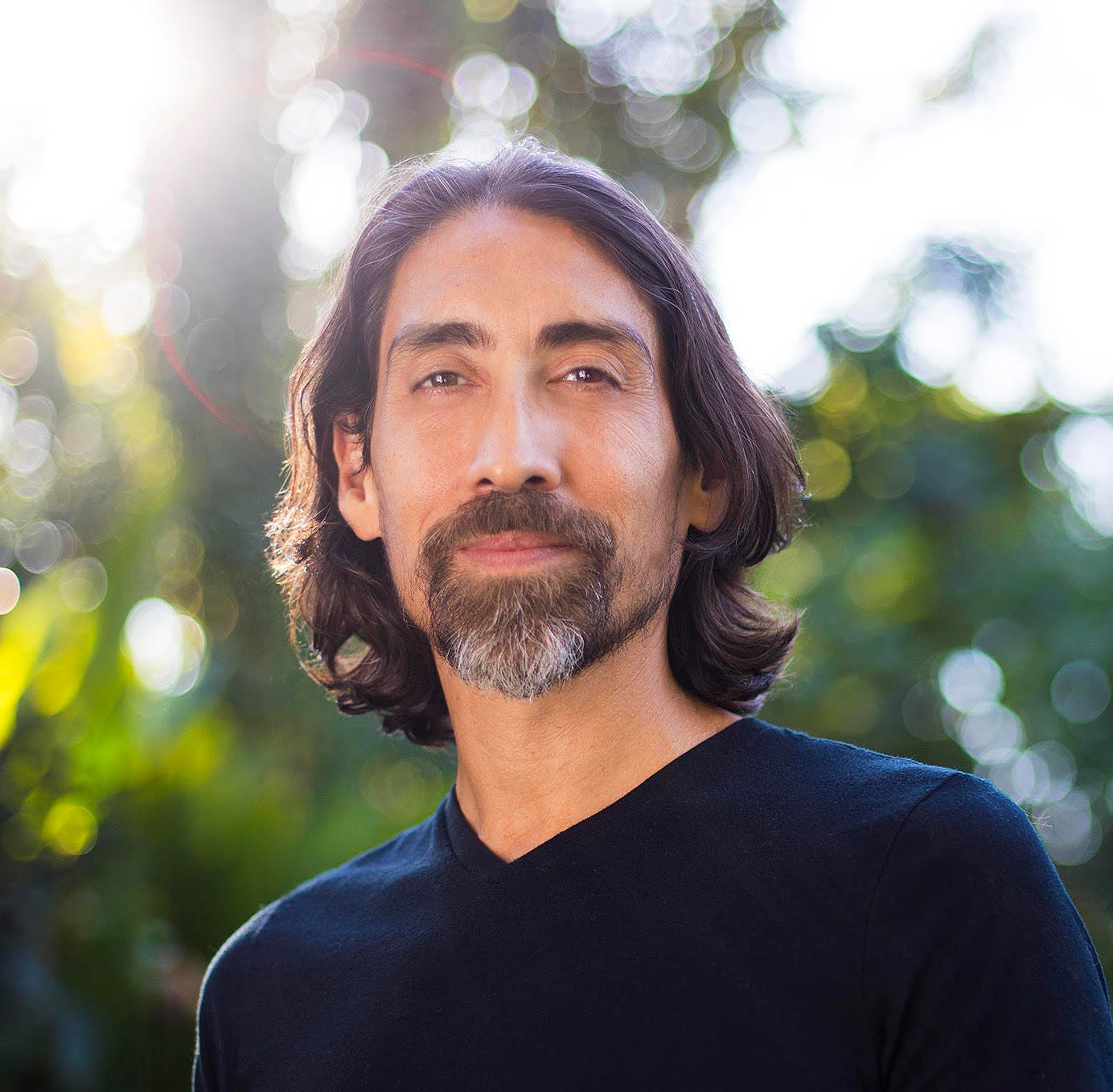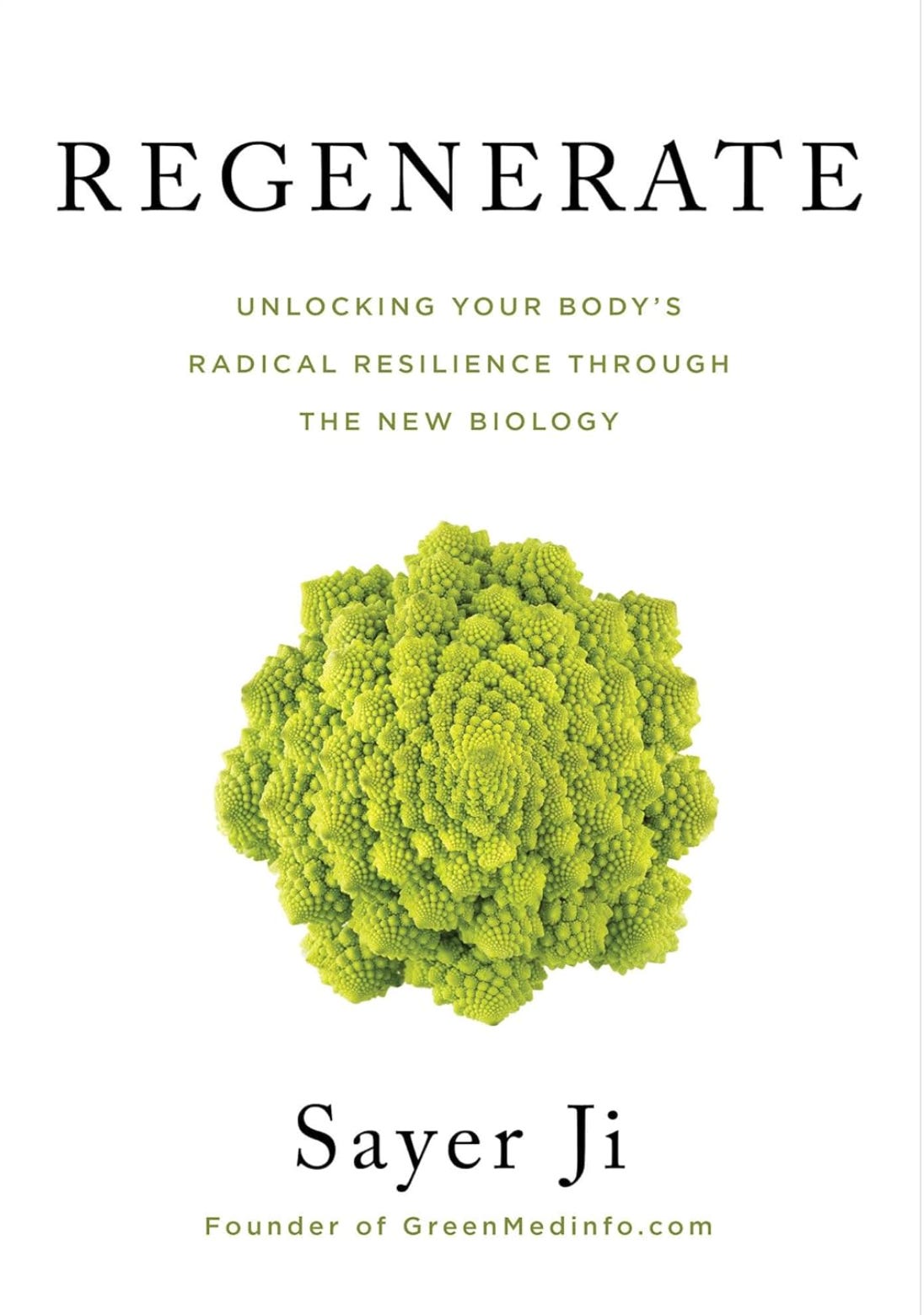Sayer Ji – MAHA’s Secret Weapon
By Emilie Hagen, Contributing Writer, The MAHA Report
It was the late ’70s in Dortmund, Germany. A young American boy lay in a European hospital bed while a nurse injected a butterfly shot into his wrist. He walked to a room lined with gurneys and hears children screaming out, “POLIZEI! POLIZEI!”
Sayer Ji — then Douglas, a kindergartner at the time, living abroad with his family while his father worked as a professor at the Max Planck institute — doesn’t need to speak the language to understand what those cries mean. The hospital waiting room feels less like care than an edifice of menace. “It was horrific,” he tells me over the phone, now 52-years-old, even describing the waiting room, where his mother remembers seeing pictures of resident doctors in their previous Nazi uniform attire.
He stops mid-sentence to answer a domestic ping — a WhatsApp about a piece of furniture arriving at his house — a small, modern interruption that lands softly beside the larger claims he’s about to make. It’s a reminder that the life Ji describes is split between the ordinary and the extreme: furniture delivery on one side; origin myths on the other. “I think fascistic medicine actually is very much part of what we saw deployed…. Project Paperclip,” he says, and the line between past and present tightens.
If you trace Ji’s career from that sterile corridor in Germany, the rest looks almost inevitable. Ji was born a sick infant and spent his youth suffering from a variety of illnesses, undergoing surgeries he experienced as mishandled and dealing with the aftermath of medications he was prescribed that led to more problems. At age 17, he gave up cow’s milk and his inhaler — swearing that by eliminating certain dairy products from his diet he no longer needed albuterol to treat his life-long asthma.
These very personal and private acts of regaining bodily autonomy evolved into public advocacy. GreenMedInfo, the site Ji founded eighteen years ago, reads like a medical index assembled by a one-man librarian for an audience hungry for alternatives: tens of thousands of health topics, an index of over 100,000 peer-reviewed studies, an email list, all curated without ads. “We’ve had many hundreds of millions of visitors,” he says. “My colleagues tell me I could have made over $25 million in ad revenue in the last ten years but I didn’t want a conflict of interest.”
Then came 2021. Ji found his name on a global list that would redefine him in the eyes of platforms and the press: the “Disinformation Dozen.”
“I was on the Disinformation Dozen list, Bobby [Robert F. Kennedy Jr.] was on it. They even had a White House press conference where [President] Biden stated that there were 12 people in the world responsible for the majority of information on social media that’s killing people,” he says.
The list was published on March 24, 2021, in a 40-page document distributed on the “Center for Countering Digital Hate” (CCDH) website. It reads, in part:
“CCDH is a UK/US non-profit that disrupts the spread of digital hate and misinformation. Anti-Vaxx Watch is an alliance of concerned individuals who are seeking to educate the American public about the dangers of the anti-vax industry. The Disinformation Dozen reveals that just twelve individuals and their organizations are responsible for the bulk of anti-vaxx content shared or posted on Facebook and Twitter. The majority of the Disinformation Dozen remain on major social media platforms, despite repeated violations of their terms of service,” the notice began.
Ji reflects, “They dismembered every aspect of my advocacy.” His Instagram, Linkedin, Youtube, Pinterest, Facebook and Twitter accounts were wiped. His Mailchimp was deactivated, interfering with his ability to push out emails to the hundreds of thousands of recipients on his mailing list. He was debanked via Paypal and Venmo. Platform after platform, the scaffolding he’d built to distribute ideas, was taken away, nearly bankrupting him.
“It’s been a nightmare. I’ve had too many attacks to count,” Ji said, yet somehow he’s still standing.
He frames that purge as proof: the act of erasure, to him, is evidence that he had become consequential enough to be targeted. “They basically decided to put me on a hit list, this disinformation dozen list was just one of them,” he says. The pronoun “they” swells to encompass platforms, NGOs, and, in Ji’s telling, state actors (he has documented the network and origin of their attacks against him in detail here and here).
“This was a UK operation. They were at the heart of this,” he claims.
“They used our own governments,” Ji continues. “They actually infiltrated the executive branch of the United States, in 2021, in August, the UK’s counter disinformation unit, which is a projection of the UK’s foreign office, gave a master class to Biden and [Kamala] Harris and their whole administration on how to censor Americans on using AI technologies.” The details of which he lays out in an 2024 expose titled “International Governments Are Criminalizing Free Speech Through Global Coordination; New Files Expose Plot,” which is based on an American First Legal FOIA disclosure that, Ji says, should be required reading for any American who cares about their country’s sovereignty.
And, Ji says, “Given the whistleblowing I have done over the years on GMOs, vaccine safety issues, and related health advocacies, I’m not surprised they put so much effort into trying to delete my work and smear my image” he said.
Now, he says, the landscape has shifted again. Robert F. Kennedy Jr. — a fellow figure named on the 2021 Disinformation Dozen list — has taken government office. Ji tells me that, in practical terms, some fights have become easier. But not all battles are over—especially on TikTok, where his account was nuked for sharing a study that praised almonds for “reversing pre diabetes better than pharmaceuticals.” Who knew almonds were so provocative?
If you ask Ji where he lives today, he won’t tell you. His whereabouts remain deliberately undisclosed — not out of paranoia, but necessity. In 2021, Ji was placed on the “Disinformation Dozen” list by the UK-based Center for Countering Digital Hate (CCDH), the same organization whose CEO, Imran Ahmed, was later exposed in a leaked internal memo admitting to orchestrating “black ops” operations against U.S. presidential candidate Robert F. Kennedy Jr. The memo, published in October 2024, revealed discussions of covert actions targeting U.S. figures deemed politically inconvenient.
For Ji, the revelation wasn’t hypothetical — it confirmed a reality he had already been living. The document demonstrated that the same foreign organization responsible for labeling and deplatforming American citizens was now openly using intelligence-style “black ops” tactics against political dissidents and candidates. In that context, Ji’s discretion about his location is both protective and emblematic: a living acknowledgment of the high stakes surrounding his advocacy for free speech, bodily sovereignty, and the exposure of coordinated influence operations across borders.
It’s easy to get swept up in the dramatic currents of Ji’s life — a story threaded with intrigue, high-stakes advocacy, and relentless pursuit of truth — but on the other side are his grounding routines. A man who practices what he preaches, he fasts intermittently, pushes himself through HIIT workouts, and ends the day with a cauliflower pizza.
“That’s the miracle right there. The fractal. A plant stem cell that’s able to produce infinite biomass that’s been replicating for millions of years,” he tells me, referring to a cauliflower, the romanesco vegetable gracing the cover of his pandemic-era , international best-seller Regenerate, a book designed to, as its subtitle reads, “unlocking your body’s radical resilience through the new biology.”
For Ji, dietary discipline isn’t vanity; it’s evidence that we have more power than we’ve been made to believe. He’ll tell you symptoms are messengers, suppression is a mistake and, he hopes, regeneration is the future.
To his extremely loyal audience, Ji is an educator and translator — someone who converts dry studies into actionable practice. To critics, he’s a dangerous amplifier — someone who gives authority to questionable interpretations at moments when misinformation can have real costs. The debate is messy and irreconcilable, and Ji is happy to stand in that friction. He’s used to being there.
In 2021, NATO formally declared the era of hybrid warfare — where tweets and tanks now share the same battlefield,” Ji says, arguing that digital speech has been reclassified as a strategic weapon alongside traditional military force.
“Dark money interests are funding third party litigation,” he swears — and then the line goes dead. Ten minutes later he’s back. Phew, were the feds listening? Paranoia is suddenly contagious.
It’s easy to fall down dark rabbit holes with Sayer Ji. Conversations that would usually happen at 3 a.m. — about a sinister trillionaire class pulling strings, UK intelligence spying on U.S. citizens, NATO infiltration, and shadowy lords and barons behind political hit lists — yet he steers those tangents with a calm that makes them sound less like fever dreams and more like dossier entries.
Ji, a Libra sun by birth, understands balance, the light and the dark, the scales that tip one way or the other. It’s a useful posture for someone who deals in both intimate regimen and geopolitical frames: a man who can describe the power of mitochondria in one breath and The Ferguson Report in the next.
This week he’s traveling to the EU Parliament in Brussels to sit on a committee representing the Global Wellness Forum at the “Make Europe Healthy Again” summit on October 15. There, he will join in dialogue with numerous grassroots organizations in the United States — including Stand for Health Freedom, which he co-founded in 2019 with Leah Wilson, and Dr. Joel Bohemier, and which has since grown into the nation’s largest health freedom voting bloc and advocacy network — alongside an international coalition united by shared values of bodily sovereignty, informed choice, and medical freedom. He describes MAHA not as an American parochialism, but as an emergent global current — an awakening catching fire in rooms across the world. Traveling to Brussels, he says, is less about diplomacy and more about connection: “plugging into a living network that knows no borders, a rippling wave of people reclaiming what it means to be truly well.”
“We’re all just trying to figure out how to make this world heal. That sounds kind of kumbaya-like hippie stuff, but that’s really what we’re all about,” he laughs.
“I like ‘Make the World Healthy Again,’” he says, his ambition limitless. “I think that’s the next step.”
Before hanging up, I ask Sayer about his thoughts on Tylenol, Advil, and Motrin, the holy trinity of over-the-counter pain medication. “All quite toxic,” he claps back, noting that when he was just twelve years old he wrote a paper on Tylenol toxicity, inspired by his father who discovered the hepatotoxicity and mitochondrial toxicity of acetaminophen products.
I ask if he knows a natural supplement that could replace Adderall or Vyvanse for people with ADHD. He recommends pine bark and spells it out for me “P Y C N O G E N O L.” He directs me to GreenMedInfo, where I can access studies that show its effects.
One final question: does he really think the world can change for the better?
Can we really get healthier? Or are we too far gone? Is the rot too deep?
His answer is startlingly optimistic.
“I know that miraculous effects can occur through non-causal intention,” he swears.
“We’re so powerful,” he states confidently. “Humans are so powerful that if just two humans lock in on a mission they can just change the world with just that fact alone.”
“Just imagine if it’s a hundred or a thousand or a million— it’s game on,” Ji tells me.
Game on. Turns out positivity is contagious, too.
To follow and/ or contact Sayer Ji, please click here.









Oh Sayer you are such an incredible "Light Worker" and YES we ARE going to manage an incredible transition into a New Earth based on everything you have been saying for years! Love you dear man and thank you...keep on keeping on.
This is amazing!Very well written and extremely informative. I wasn’t familiar with his work and am glad that The Maha Report is highlighting people like this in the movement. I believe symptoms r messengers and we have to get to the root cause. Thank you 👏🏻